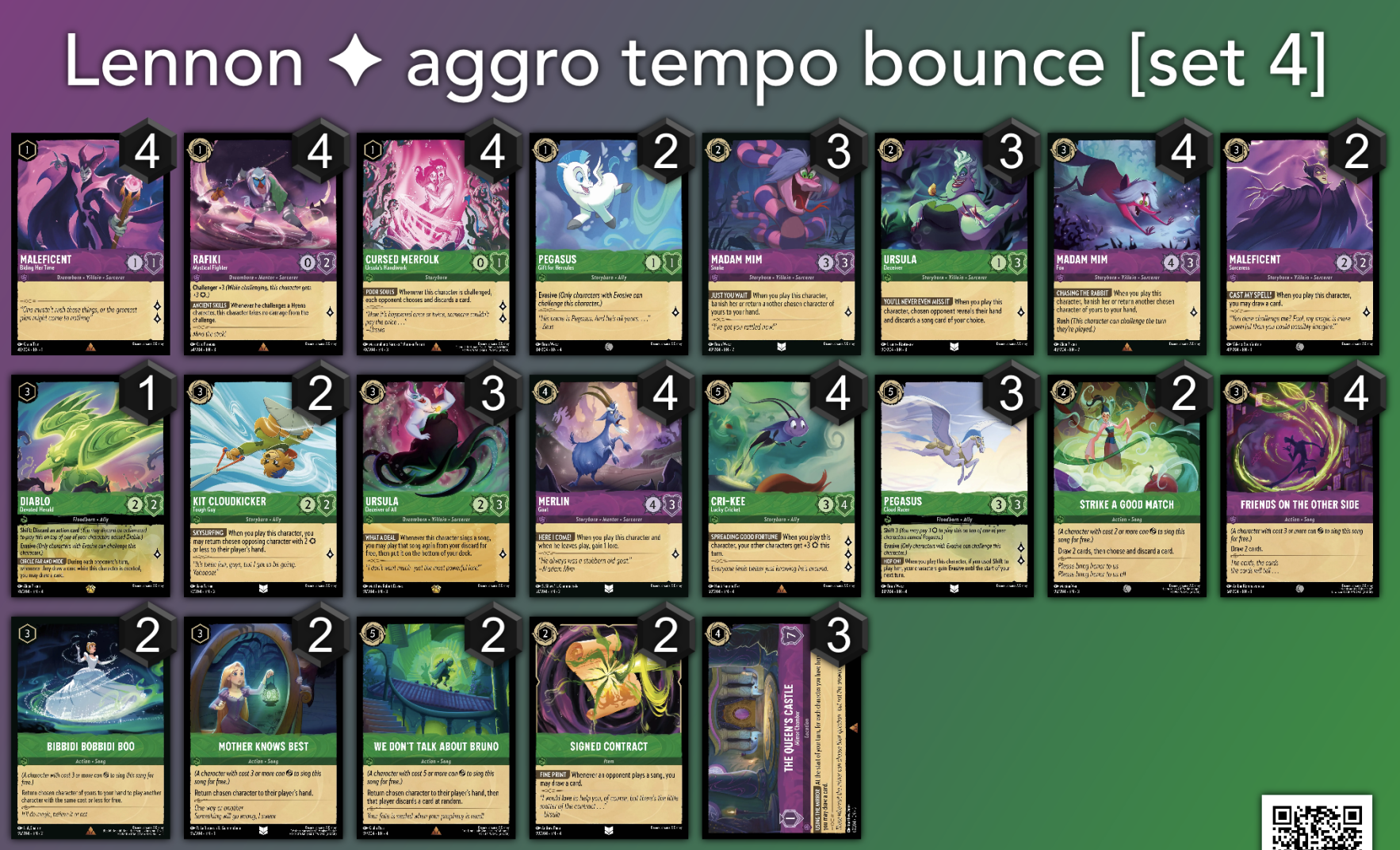
A screenshot of one player’s card deck from Pixelborn
My friend Larry called to warn me about the “evil Robin Hood” he had discovered furthering “the degeneration of societal norms.” Larry owns an art gallery and is tuned in to all manner of associated subjects, from Braque’s congruence with Picasso, to prison art, to intellectual property issues. The thing he saw that he thinks “takes another step” toward societal collapse is a recent case involving the Walt Disney Company and an online card-game platform called Pixelborn.
Disney is, of course, the global media conglomerate founded in 1923 and now worth $206 billion. And people love to play trading-card games (TCGs) such as Magic: The Gathering, which has been around 30 years and can be played in life or online; players battle each other with characters and spells from the cards.
There is a Disney-licensed trading-card game called Lorcana, published by Ravensburger, a company known for its puzzles, games, and arts and crafts sets. But Lorcana is played in person, such as in your town’s LGS (Local Game Store). There is a distinct subculture to these places—store owners sometimes have to demand better hygiene and deodorant use—and there can be a surprising amount of toxicity in these games in general. Collectors of the cards and players of the card games often “hate each other,” Larry says, and accuse each other of not using the cards for what they were meant for. He witnessed a parent in an online forum, asking a question about the function of a Little Mermaid card on behalf of his young child, getting flamed by other gamers with agile profanity and insults regarding his capacity for cognition.
Many people (some of whom claim social anxiety) would rather be able to play online. But Lorcana does not have an online version—yet, and that is where Pixelborn comes in. Pixelborn is an unlicensed app for that particular TCG “that offers a fully automated way to build decks, learn to play, and practice against real players all over the world, entirely for free,” says The Gamer. It was created by Bulgarian software engineer Pavel Kolev, entirely on his own. People have loved it in the way they love Disney characters and stories—which is to say wildly—and it it has 73,000 users. However, using Disney “intellectual property,” as the lawyers like to say, was always inviting trouble.
The trouble arrived two days ago, when Disney insisted Pixelborn be shut off by June 16, 2024. Kolev made a statement that he would comply (there is no recourse), though “My heart is shattered to pieces. I’ve put everything into this project for the past year and a half. Every night, weekend, and holiday. I know it meant a lot for many people as the only way to experience the game we all love.”
Larry’s take on all this may be the most interesting part. While anyone can sympathize with users who have been stripped of an activity they love, which they always viewed as an homage to Disney, not a rip-off, Larry points out that fans are furious at the corporation for stopping someone in another country from committing felony copyright infringement.
He calls it “a new thing”—an aggressive, crowd-based feeling of ownership toward what others have created. He sums it up, “Everyone thinks they should be able to make Batman movies.
“‘There is no ownership; everything is ours, and we have the right to it,’” he says. He calls it a “crowd-sourced, evil Robin Hood.”
Something is in the air. AI has been doing the same thing—taking others’ work, such as writing and art, and using it to present its own product to consumers—and Chinese manufacturers “ruined” Etsy, Larry says, by watching what sold from independent creators then selling cheaply-made versions of it more cheaply. There may even be a tie to our politics, in which an enthusiastic fan base deny legal claims against the head of a community they love to feel part of.
